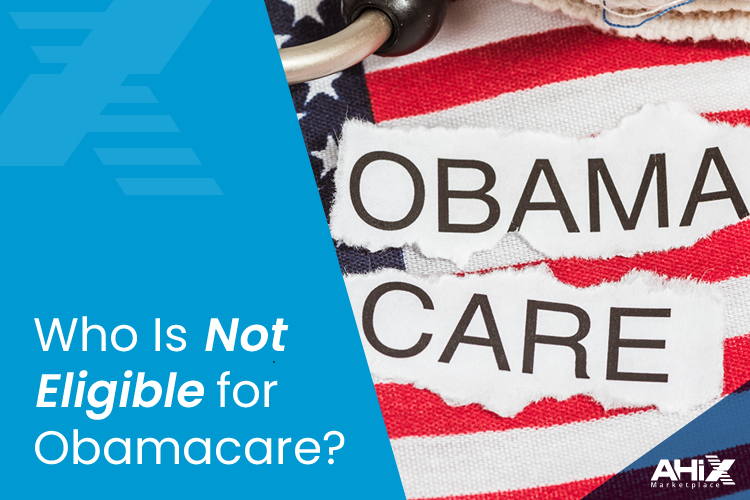Arizona Senior Health Insurance Plans play a crucial role in ensuring seniors have access to the medical care they need. As we age, health insurance becomes increasingly important, especially for seniors who may require more medical attention and services.
Navigating the many healthcare coverage options in Arizona can feel overwhelming. This comprehensive guide will help you understand the various senior health insurance plans available, so you can make an informed decision and choose coverage that best meets your healthcare needs.
Best Health Insurance Plan for 65: Senior Health Insurance in Arizona
Arizona offers a range of health insurance coverage options tailored specifically for seniors. These options include Medicare, Comprehensive Managed Care Plans, Medicare Supplement Insurance (Medigap), and Medicaid. Understanding the benefits and limitations of each option will help you choose the best plan for your own financial situation..
Understanding Health Insurance Options
Health insurance is a crucial aspect of maintaining good health and financial stability. With numerous options available, it can be overwhelming to choose the right health insurance costs and care plan. Understanding the different types of health insurance options is essential to make an informed decision. Health plans can be broadly categorized into individual and family plans, group plans, and government-sponsored plans. Individual and family plans are designed for individuals and families who do not have access to employer-sponsored medical protection. Group plans are offered by employers to their employees, while government-sponsored plans, such as Medicare and Medicaid, provide health coverage to eligible individuals.
1. Original Medicare
Original Medicare is a federal Arizona senior health insurance Plan primarily for individuals aged 65 and older. It consists of two parts:
- Part A (Hospital Insurance):
Covers inpatient hospital stays, care in a skilled nursing facility, emergency care, hospice care, and some home health care.
- Part B (Medical Insurance):
Covers certain doctors’ services, outpatient medical care, medical supplies, and preventive services.
Individuals aged 65 and older, as well as those receiving disability benefits, are eligible for Medicare.
Original Medicare provides essential coverage, but it does not cover all medical expenses. Beneficiaries are responsible for deductibles, coinsurance, and copayments, which can add up.
2. Medicare Advantage Plans (Part C)
Medicare Advantage Plans, also known as Part C, are an alternative to Original Medicare. These plans are available to individuals who are eligible for Medicare and offer an alternative to Original Medicare. Offered by private policy companies approved by Medicare, these plans provide all Part A and Part B benefits and often include additional benefits such as:
- Prescription drug coverage (Part D)
- Dental, vision, and hearing care
- Wellness programs and gym memberships
Medicare Advantage strategies often have network restrictions, meaning you may need to use specific doctors and hospitals. However, they can offer more comprehensive coverage than Original Medicare.
3. Medicare Part D (Prescription Drug Coverage)
Medicare Part D provides prescription drug coverage and is available to anyone with Medicare. Part D plans are offered by private insurance companies and can be added to Original Medicare or some Medicare Supplement Plans that don’t include drug coverage. Choosing the right Part D plan involves considering the list of covered medications (formulary), premiums, deductibles, and copays. Medicare Part D is an essential component of comprehensive health coverage for seniors, ensuring access to necessary medications.
4. Medicare Supplement Insurance (Medigap)
Medigap is supplemental insurance sold by private companies to fill the gaps in Original Medicare coverage. It helps pay for out-of-pocket costs such as deductibles, copayments, and coinsurance. There are ten standardized Medigap plans available in most states, including Arizona, each labeled with a different letter (e.g., Plan A, Plan B, etc.). Medigap plans are available to individuals who are eligible for Medicare and seek additional coverage for out-of-pocket costs.
Medigap plans do not cover prescription drugs, so you may need to enroll in a separate Part D plan. It’s important to note that Medigap is only compatible with Original Medicare, not Medicare supplement plans.
6. Federal Health Insurance Program
The federal health insurance program, also known as Medicare, is a government-funded health insurance program designed for individuals 65 or older, certain younger people with disabilities, and people with End-Stage Renal Disease (permanent kidney failure requiring dialysis or a transplant). Medicare provides health coverage for hospital services, medical services, and prescription drugs. There are four parts to Medicare: Part A (hospital insurance), Part B (medical insurance), Part C (Medicare Advantage), and Part D (prescription drug coverage). Medicare Advantage plans offer additional benefits, such as vision, dental, and hearing coverage, and may have lower personal healthcare expenses.
5. Medicaid
Medicaid is a state and federal program that provides health coverage to low-income individuals, including seniors. In Arizona, Medicaid is known as the Arizona Health Care Cost Containment System (AHCCCS). Seniors may be eligible for AHCCCS if they meet certain income criteria.
Medicaid can help cover costs that Medicare does not, cover expenses such as long-term care services and support. Eligibility and benefits vary, so it’s important to check the specific requirements for Arizona. Medicaid provides essential health insurance coverage for low-income seniors, helping to cover costs that Medicare does not.
6. Long-Term Care Insurance
Long-term care insurance is designed to cover services not typically covered by Medicare or other senior healthcare plan, such as nursing home care, assisted living, and in-home care. This type of insurance can be crucial for seniors who anticipate needing extensive long-term care services. Policies and coverage vary, so it’s essential to compare different plans and providers. Long-term care insurance is a crucial component of comprehensive health insurance coverage for seniors who anticipate needing extensive care services.
7. Short-Term Health Insurance
Short-term health insurance provides temporary coverage for seniors who are between health plans in Arizona or waiting for other coverage to begin. These plans can serve as a temporary solution but often come with limited benefits and exclusions for pre-existing conditions. They are not a replacement for comprehensive Arizona senior health insurance plans but can provide some level of coverage during transitions.
Short-term Healthcare plan provides temporary health insurance options for seniors during transitions between plans.
8. Veteran Health Benefits
Veterans who have served in the U.S. military may be eligible for health benefits through the Department of Veterans Affairs (VA). VA health benefits can include hospital care, outpatient services, and prescription drugs. Eligibility and coverage levels vary based on factors such as length of service and service-connected disabilities. VA health benefits provide comprehensive health coverage for eligible veterans, including hospital care and outpatient services.
9. Employer-Sponsored Retiree Health Plan In Arizona
Some seniors may have access to Medical Coverage through a former employer. These retiree health plans can supplement Medicare coverage, providing additional benefits such as prescription drug coverage and reduced out-of-pocket costs. It’s important to review the details of any employer-sponsored retiree health plan in Arizona to understand how it integrates with Medicare. These retiree insurance plans are available to retirees who are eligible for Medicare and can provide additional benefits and reduced direct Medical Costs.
individuals and families, which can help reduce the cost of health insurance.
10. Dental and Vision Coverage
Original Medicare does not cover most dental and vision care, which can be a significant concern for seniors. Some Medicare Plans include dental and vision benefits, but if yours does not, you may need to purchase standalone dental and vision insurance plans. These plans can help cover routine exams, eyeglasses, dental cleanings, and more.
Health Insurance for Early Retirees
Early retirees, typically those who retire before age 65, may face challenges in finding affordable Medical Insurance. However, there are several options available. The Medical Insurance Marketplace, established by the Affordable Care Act, offers health insurance plans to individuals and families, including early retirees. These plans may be eligible for premium tax credits, which can help reduce the cost of health insurance. Additionally, some employers offer retiree health benefits, which can provide health coverage until Medicare eligibility. Early retirees can also consider purchasing a private health insurance plan or exploring Medicare Advantage plans.
Arizona Health Insurance Marketplace
The Arizona Health Insurance Marketplace is a platform where individuals and families can purchase health insurance plans. The marketplace offers a range of plans from various health insurance companies, including Ambetter, Blue Cross Blue Shield of Arizona, and Cigna. Arizona residents can enroll in a health insurance marketplace plan during the annual Open Enrollment Period or during a Special Enrollment Period if they experience a qualifying life event, such as losing job-based health coverage or getting married. The marketplace also offers premium tax credits to eligible
Choosing the Right Medical Insurance
Choosing the right health insurance plan can be a daunting task, but there are several factors to consider. First, consider your health needs and budget. If you have ongoing medical expenses, you may want to choose a plan with lower out-of-pocket medical costs. Next, consider the network of healthcare providers and hospitals. Make sure the plan covers your preferred healthcare providers and hospitals. Additionally, consider the premium cost and any additional benefits, such as dental or vision coverage. Finally, review the plan’s rating and reputation to ensure you are purchasing a plan from a reputable health insurance company.
Arizona-Specific Health Insurance Options
Arizona residents have several health insurance options available. The Arizona Health Insurance Marketplace offers a range of plans from various health insurance companies. Additionally, Arizona residents may be eligible for Medicaid or the Children’s Health Insurance Program (CHIP). Employer-sponsored health insurance is also an option for those who are self employed here. Arizona residents can also purchase a private health insurance plan or explore Medicare Advantage plans. It is essential to research and compare the different options to find the best health insurance plan for your needs and budget.
Conclusion
Navigating the health insurance options for Arizona seniors can be challenging, but understanding the various plans and their benefits can help you make an informed decision. Whether you choose Original Medicare, a Medicare Advantage Plan, Medigap, or another option, it’s essential to evaluate your healthcare needs, budget, and preferences. Health insurance is a crucial component of maintaining your health and financial well-being as you age.
FAQs about Health Insurance Options for Arizona Seniors
1. What is the best health insurance for seniors in Arizona?
The best health insurance option depends on individual healthcare needs and financial situations. Original Medicare is a good starting point, but many seniors benefit from adding a Medicare Advantage Plan or Medigap policy for more comprehensive coverage.
2. How can I apply for Medicaid in Arizona?
You can apply for Medicaid (AHCCCS) in Arizona online through the AHCCCS website, by mail, or in person at a local AHCCCS office. Ensure you have all necessary documents, such as proof of income and residency, to complete the application.
3. How to get medical insurance in Arizona?
For personalized support, start with a licensed insurance agency. You can also apply through the Health Insurance Marketplace at Healthcare.gov, contact insurance companies directly, or see if you qualify for Medicaid by visiting the Arizona Health Care Cost Containment System (AHCCCS) website.
4. What is the best health insurance for seniors in Arizona?
The best health insurance for seniors in Arizona depends on individual needs but often includes Advantage Plans for Medicare due to their comprehensive coverage and cost-effectiveness.
5. Are there health insurance options for low-income senior citizens in Arizona?
Yes, low-income senior citizens in Arizona can benefit from Medicaid and Medicare Savings Programs.
6. What health insurance options are available for seniors under age 65 in Arizona?
Seniors under 65 may qualify for disability-related Medicare or can explore private insurance plans tailored to their needs. Seniors under 65 who receive disability benefits may be eligible for Medicare, providing them with essential health coverage.
7. What are the types of health insurance for seniors in Arizona?
Types include Original Medicare, Medicare Advantage, Medigap, and long-term care protection.
8. How much does senior health insurance in Arizona cost?
The cost of senior health insurance in Arizona varies based on the type of plan, coverage options, and individual factors. Here are some general estimates:
- Medicare Advantage plans: $0 to over $100 per month.
- Medigap plans: $50 to $200 per month.
- Prescription drug plans (Part D): $15 to $100 per month.
For the most accurate pricing, compare plans and get quotes from providers.
9. Who are the top Arizona senior health insurance plan providers?
Top providers include Ahix, Blue Cross Blue Shield of Arizona, UnitedHealthcare, Humana, and Aetna, offering a variety of plans for seniors.



